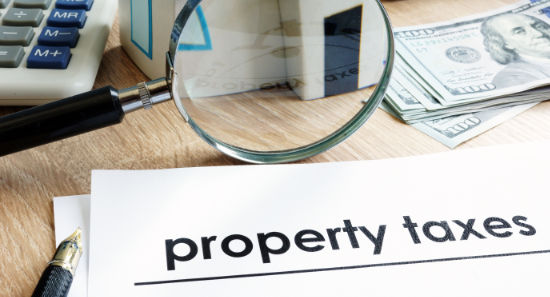Property taxes in Germany play a significant role in real estate ownership. Understanding the types and calculation methods is crucial for compliance. Comparing property tax systems with the USA can provide valuable insights for international investors.
Understanding Property Taxes in Germany
Property taxes in Germany are essential for property owners to comprehend. Both residents and foreigners must be aware of their tax obligations regarding property, including tax types, rates, and payment deadlines.
Types of Property Taxes in Germany
- Property Taxes A and B
- Distinct taxation for agricultural and forestry properties as well as developed or developable properties
Calculation of Property Taxes
The calculation of property taxes in Germany is based on the property’s standard value, the property tax rate, and the assessment rate. Standard value, determined by tax authorities, may differ from current market values, impacting tax amounts. Property tax rates vary based on property type, and municipal assessment rates regulate local taxes.
Property Tax Comparison by City in Germany
Berlin Property Taxes
In Berlin, property taxes are calculated based on the assessed value of the property, the property tax rate, and any additional local taxes imposed by the municipality. Property owners in Berlin should be aware of the different tax rates applicable to residential and commercial properties. The city’s property tax system aims to ensure fair taxation and sustainable urban development.
Munich Property Taxes
Munich, like other German cities, also levies property taxes on real estate owners. The tax amounts are determined by the property’s value, location, and usage. Property owners in Munich should consider the implications of property taxes on their overall investment strategy. Understanding the tax regulations in Munich can help property owners make informed financial decisions.
Hamburg Property Taxes
Hamburg’s property tax system is designed to generate revenue for the municipality while promoting equitable taxation. Property owners in Hamburg must pay attention to the tax rates applicable to their properties and the deadlines for tax payments. Understanding the impact of property taxes on real estate investments in Hamburg is essential for effective financial planning and compliance with local regulations.
Impact of Property Taxes on Real Estate Investments
Assessing Property Value for Tax Purposes
When investing in real estate in Germany, it is essential to consider how property taxes can impact the overall value of your investment. Assessing the property value for tax purposes is crucial for determining the amount of tax you will owe. The assessed value can affect your overall return on investment and should be carefully calculated to ensure accurate tax liabilities.
Rental Income and Property Taxes
Rental income plays a significant role in real estate investments, but it is important to understand how property taxes can impact your rental income. Property taxes are an essential expense that must be factored into your investment calculations. Understanding the taxation on rental income can help you make informed decisions about your real estate investments and maximize your returns.
Local Tax Regulations in Germany
Municipal Taxes on Real Estate
When it comes to owning property in Germany, understanding municipal taxes is crucial. Municipal taxes are levied by local authorities and play a significant role in property ownership. These taxes are used to fund various local services such as schools, infrastructure, and public amenities.
Land Tax and Assessment Rates
Land tax, also known as Grundsteuer, is an essential component of property taxation in Germany. It is based on the size and location of the land owned. Assessment rates are determined by local authorities and can vary depending on the area. It’s important to stay informed about these rates to ensure compliance with local tax regulations.
Property Transfer Tax Considerations
Property transfer tax is levied on the sale of real estate in Germany and is typically paid by the buyer. The tax rate varies depending on the state where the property is located, with rates ranging from 3.5% to 6.5%. It’s important for buyers and sellers to consider these tax implications when entering into property transactions to avoid any surprises during the transfer process.
Property Tax Exemptions and Deductions in Germany
Criteria for Exempt Properties
Property tax exemptions in Germany are available for certain properties that meet specific criteria. These exemptions are granted to properties used for non-profit purposes, such as religious, charitable, or educational activities. Additionally, historical buildings or properties of cultural significance may also qualify for exemption from property taxes.
- Non-profit properties
- Historical buildings
- Cultural heritage properties
Deductible Expenses for Property Owners
Property owners in Germany may be eligible for deductions on certain expenses related to their properties. These deductible expenses can include maintenance and repair costs, property management fees, and mortgage interest payments. By keeping track of these expenses, property owners can reduce their overall tax burden and maximize their tax benefits.
- Maintenance and repair costs
- Property management fees
- Mortgage interest payments
Important Deadlines for Property Tax Obligations
Deadline for Property Tax Payments
Property owners in Germany are required to adhere to specific deadlines for property tax payments. Failure to meet these deadlines can result in fines or penalties. It is crucial to stay informed about the due dates to avoid any issues with tax compliance.

